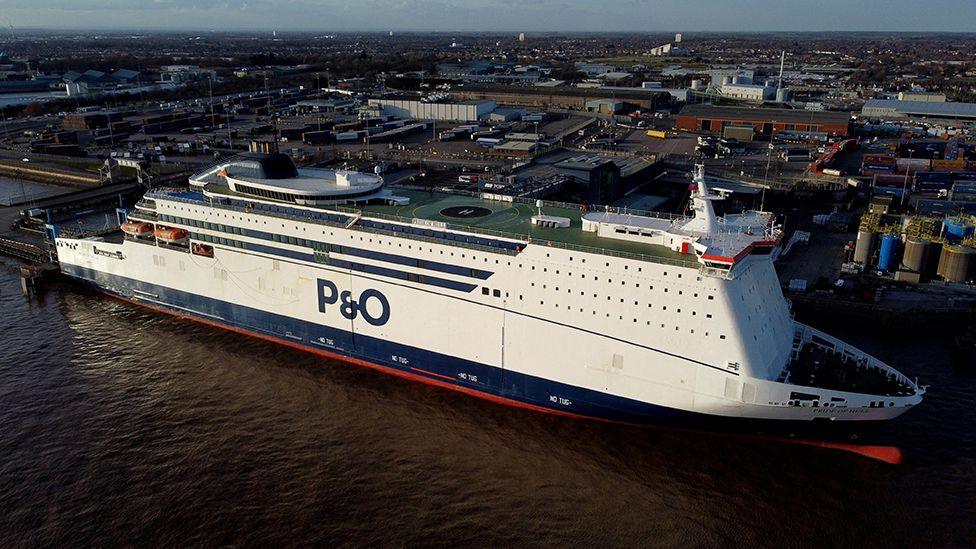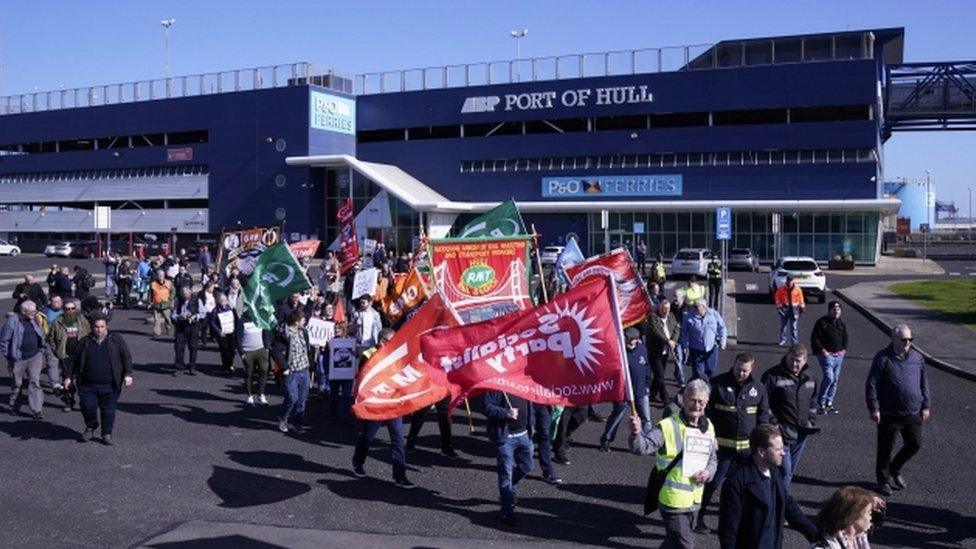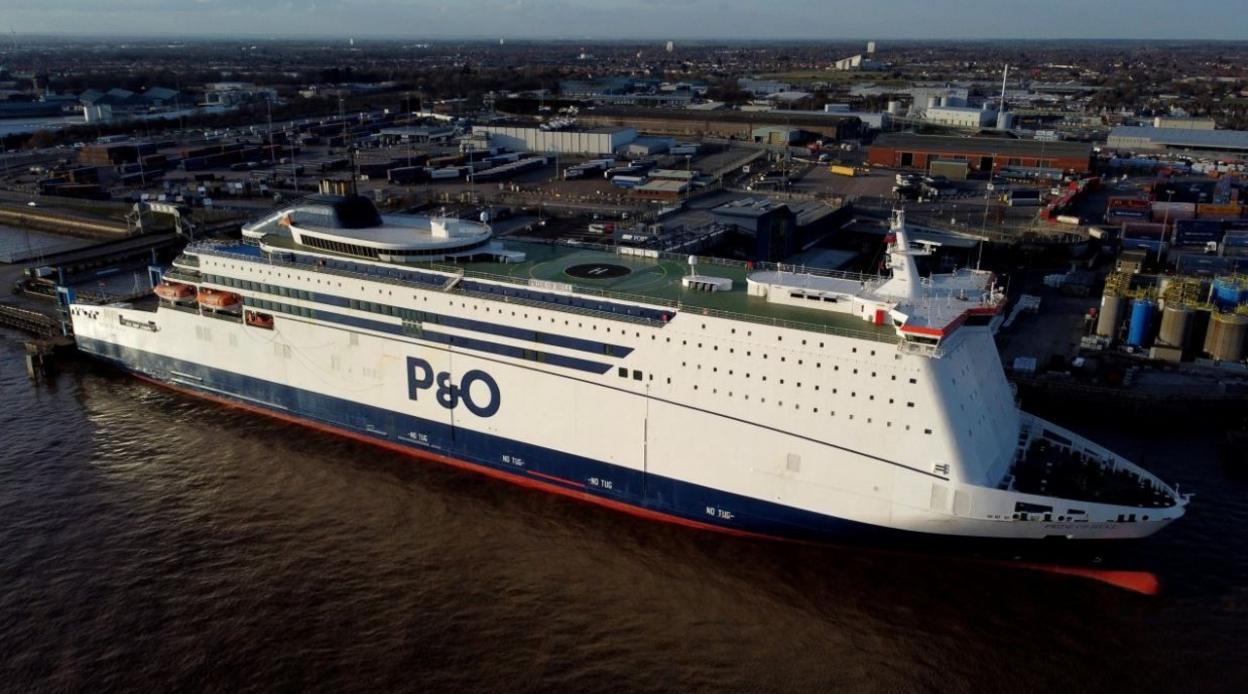New laws to protect seafarers after P&O sackings

Workers were sacked from the Hull to Rotterdam ferry route
- Published
New legal protections are to be brought in to protect seafarers in the wake of mass sackings by P&O Ferries.
In 2022, the company fired 800 staff and replaced them with cheaper foreign agency workers.
At the time, P&O said it was a "tough" decision but it would "not be a viable business" without the changes. The move led to protest in ports across the UK, including Hull.
The Employment Rights Bill, set to go before parliament, would strengthen rules against collective dismissal and protect wages.

The sackings led to protests at Hull Docks
Under current legislation, foreign agency workers can be paid at a rate well below the UK minimum wage.
The government’s new legislation would close this loophole, forcing operators that call at least 120 times a year at UK ports to pay staff the UK minimum wage while in British waters.
Operators that fail to comply would be forced to pay a surcharge at each port call it makes.
Continued non-compliance could see operators refused access to the port altogether.
The bill also includes a measure that would end “fire and rehire” practices except where employers genuinely have no alternative.
It would also close a loophole used by P&O Ferries by toughening the collective redundancy notification requirements for operators of foreign vessels.
According to the Local Democracy Reporting Service, it means operators planning to dismiss 20 or more employees would be legally required to notify the government, and face potential prosecution or an unlimited fine.
Basic rights
Announcing the new act, Deputy Prime Minister Angela Rayner said: “We’re on a mission to end exploitative work and we’re legally enshrining our promises so no employer can abuse the system to rob their workers of the basic rights and dignity they deserve.
“What we saw with P&O Ferries was an outrageous example of manipulation by an employer and exactly why we’re taking bold action to improve job security in the UK.”
P&O Ferries told the BBC it welcomed “any legislation that creates a level playing field among ferry operators”.
The company added that the “tough but necessary changes made in March 2022 saved the business and 2,000 jobs”, saying it was now on track to return to profitability which is a “necessary condition for any business to sustain jobs for the long term”.
Listen to highlights from Hull and East Yorkshire on BBC Sounds, watch the latest episode of Look North or tell us about a story you think we should be covering here, external.
Related topics
More related stories
- Published10 October 2024

- Published4 May 2024

- Published18 March 2022

- Published18 March 2022
